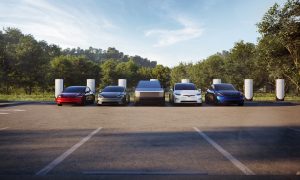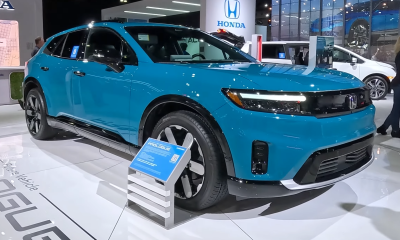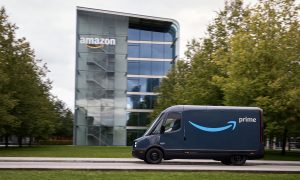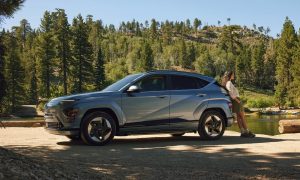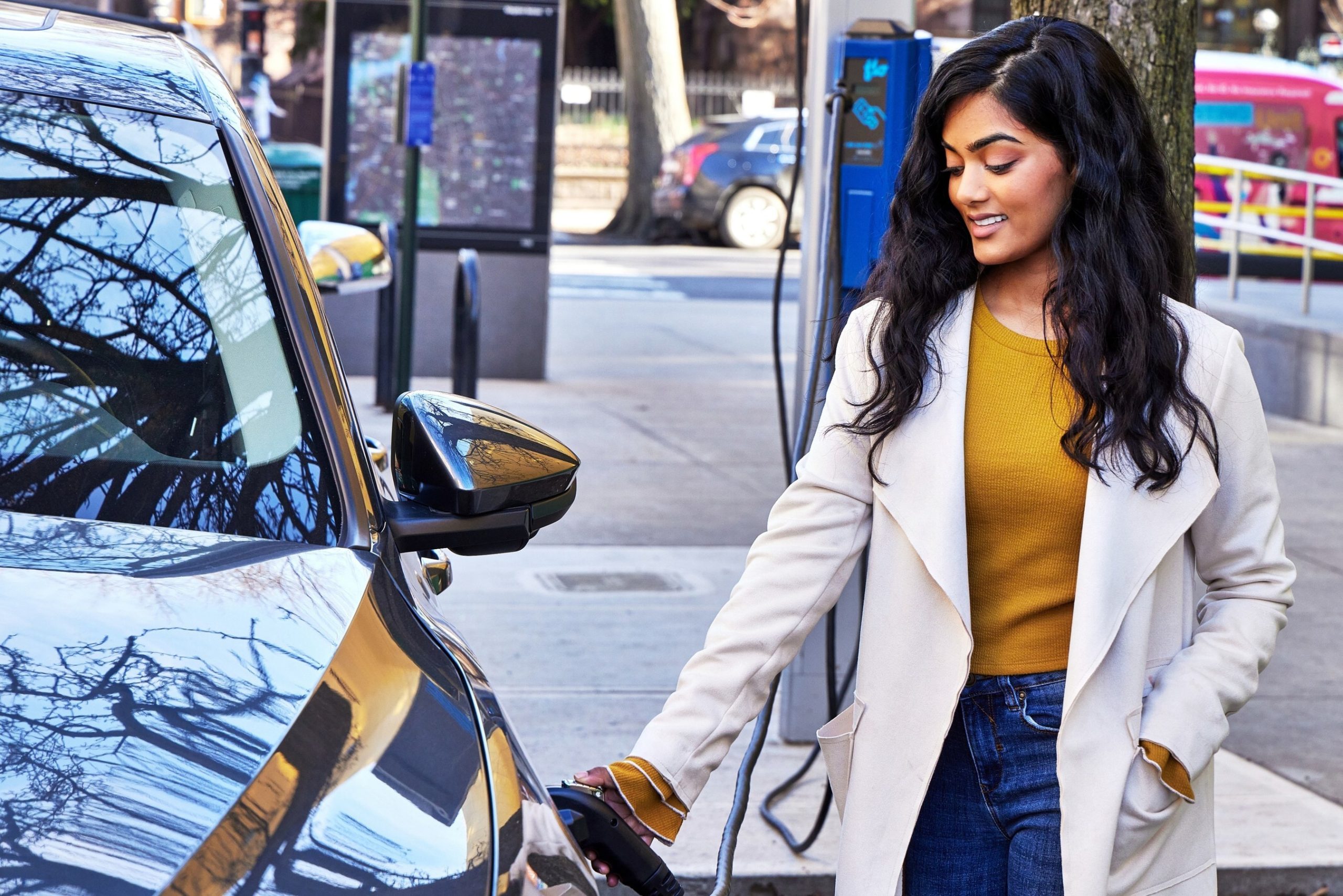

News
How EV adoption is soaring in unlikely circumstances, and what could make it better
The adoption of electric vehicles has continued to skyrocket over the past several years despite challenging supply chain conditions, less-than-ideal geopolitical scenarios, lingering effects of the COVID-19 pandemic, and the soaring cost of EV materials. How this optimism remains was examined in a recent white paper from Cox Automotive, which outlined how EVs continue to defy all odds and gain market share, despite monumental challenges standing in the sector’s way.
EV Adoption grows despite rough conditions
The state of EV adoption is relatively healthy, with more Americans buying EVs than ever despite increased costs and extended wait times for delivery. Automakers across the EV manufacturing industry have been forced to adjust prices and vehicle lineups due to the increased cost of materials and supply chain deals. Tesla, for example, axed the $35,000 Standard Range+ Model 3, and its most affordable vehicle now starts at well over $40,000. Rivian was forced to push prices upward due to materials costs soaring after Russia’s invasion of Ukraine, and these examples are just two of many.
Supply chain bottlenecks have also forced consumers to push back wait times for EVs considerably. Some configurations of EVs are not available until next year due to extensive order logs; take the Long Range Tesla Model 3, for example, which won’t be available until 2023 because of its heavy demand.
Despite this, EV adoption has increased every year since 2019. “Americans are buying EVs at a record pace despite rising prices and long waits for delivery. The fleet industry is also taking note with fleet operators highly motivated to replace their gas-powered fleets with EVs to achieve sustainability goals, drive efficiency and reduce total cost of ownership,” Cox Automotive wrote in the summation of its white paper.
Price Parity and the EV Tax Credit
Price parity has always been talked about when it comes to EVs. It does not take a genius to figure out that the average person will choose an affordable car over an expensive one, even if the expensive one will not require weekly stops at the pump. However, one of the biggest things keeping EVs from extremely rapid adoption is the prices of the cars themselves, which have increased considerably over the past year due to materials costs soaring.
Luckily, consumers can take advantage of the Inflation Reduction Act, which will provide EV buyers with tax credits based on where their vehicle was manufactured and whether the car equips a U.S.-manufactured battery. “Tax incentives available as part of the Inflation Reduction Act of 2022 will be critical to consumer adoption, helping offset the cost of pricey EVs.” This is a key point in the mass adoption in EVs, and consumers will likely stick to gas-powered cars as long as they are able to if they are more affordable than a quality EV.
Supply Chain Disruptions have slowed EV adoption considerably
Related to other points already made, supply chain disruptions and constraints are slowing EV adoption. U.S.-based EV manufacturers are too reliant on foreign companies for parts, Cox said. Automakers are pushing to produce battery packs and other parts in the U.S., which will eventually help combat slow logistics times.
“Global computer chip and material shortages are impacting production, raising the price of new and used vehicles, and contributing to long waits to buy new EV models.” Consumers want affordable and they want it now. Costs will continue to remain high, and wait times will stay long if U.S. automakers do not adopt domestic supply chain strategies.
Superior EV tech is keeping the U.S. competitive
Domestic supply chain bottlenecks may have some consumers willing to spend a little extra opting for other vehicle options. If someone is willing to spend $160,000 on a car and they can buy a 2022 Porsche 911 GT3 and get it in two weeks, they’re more likely to buy that instead of waiting months for a Tesla Model S Plaid if environmental reasons and fuel savings are not being considered. Tech and the innovations of battery chemistries and recycling are keeping the U.S. automakers in focus. If battery makers can develop various battery chemistries comprised of materials that can be sourced in the U.S., wait times will reduce and cars will have more availability.
I’d love to hear from you! If you have any comments, concerns, or questions, please email me at joey@teslarati.com. You can also reach me on Twitter @KlenderJoey, or if you have news tips, you can email us at tips@teslarati.com.
Elon Musk
Elon Musk confirms Grok 4 launch on July 9 with livestream event
The rollout will be accompanied by a livestream at 8 p.m. Pacific Time.
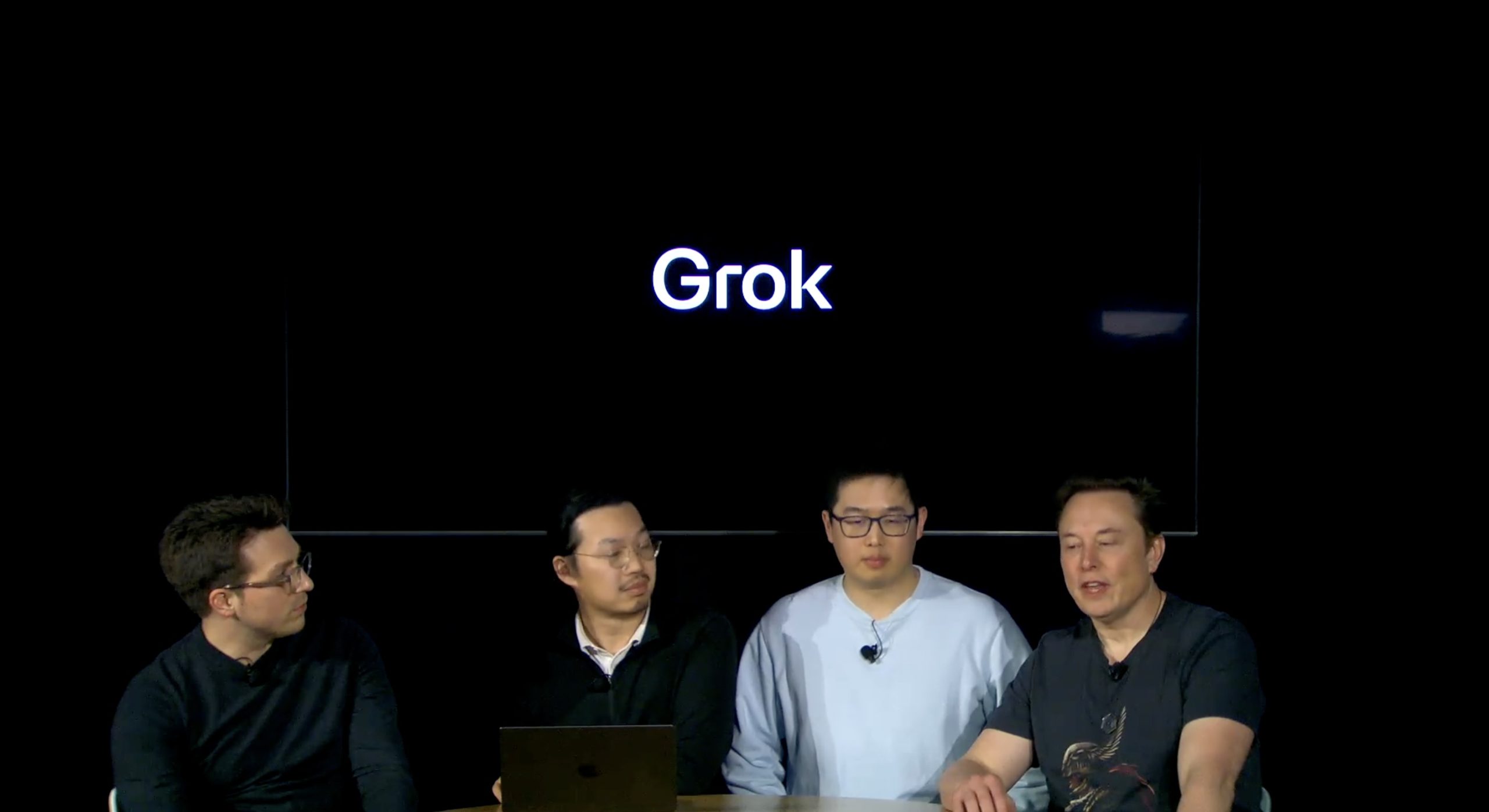
Elon Musk has officially confirmed that Grok 4, the latest version of xAI’s large language model, will launch on July 9. The rollout will be accompanied by a livestream at 8 p.m. Pacific Time, hosted on xAI’s official account on X.
xAI goes straight to Grok 4
Back in May, leaks indicated that xAI was getting ready to ship Grok 3.5. Considering Musk’s recent comments, however, it appears that the artificial intelligence startup would be focusing on the large language model’s fourth iteration instead. As noted in a Financial Express report, users on X have sighted references to Grok 4 in the lead up to the update’s launch, such as “grok-4-prod-mimic” and “Grok 4 Code.”
Musk’s Grok 4 announcement comes as AI competition intensifies between major players including OpenAI, Google, and xAI. With Musk’s Colossus supercomputer fully operational in Memphis, xAI appears to be accelerating its AI product roadmap.
Musk pushes Grok toward political neutrality
Grok 4’s launch also follows a recent controversy involving political bias, as noted in a CNN report. Last week, Grok responded to a user on X stating that political violence in the U.S. since 2016 had come more from the political right than the left. The chatbot noted in a later reply that its answer was based on information from sources like Reuters, the Journal of Democracy, and University of Maryland studies.
Musk stated that Grok’s response was a “major fail.” “Major fail, as this is objectively false. Grok is parroting legacy media. Working on it,” he wrote in a post on X. By the end of June, Musk noted that he was “grinding all night with the xAI team” and that they were making “good progress.” He also stated that the model “Will be called Grok 4. Release just after July 4th. Needs one more big run for a specialized coding model.”
News
Tesla opens massive solar Supercharger station in California
The Supercharger opened to customers ahead of Fourth of July weekend, while Tesla continues phase two of construction on the site.
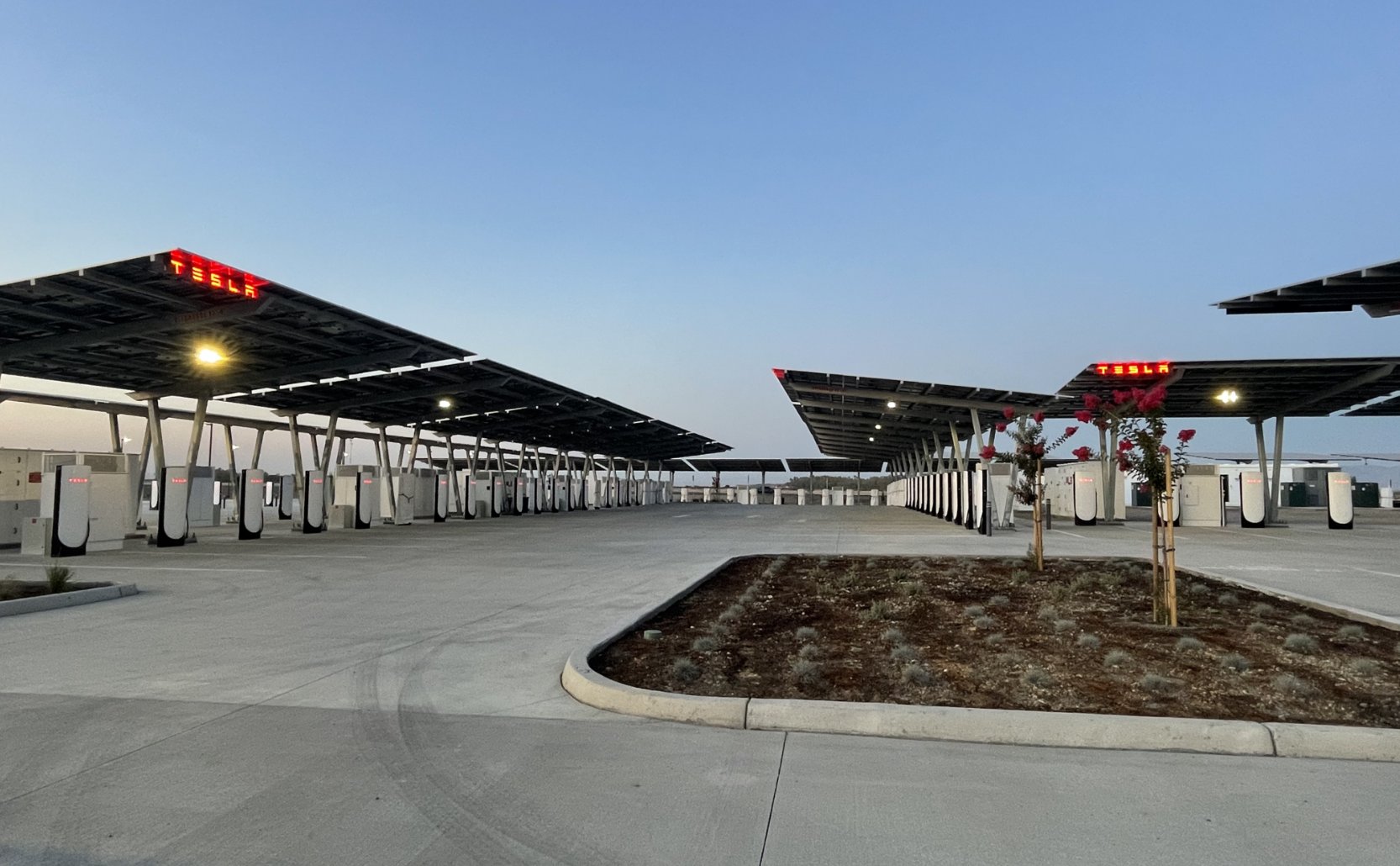
Tesla has officially launched the first several Supercharging posts at a massive station in California, notably including solar canopies and grid-scale batteries to offer completely renewable charging.
Last week, Tesla announced on X that it opened the first 84 Supercharger stalls of a planned 168-stall station in Lost Hills, California. Additionally, the massive Supercharger project features 11MW of solar canopies and 10 Megapack batteries for off-grid charging powered entirely by solar energy.
Tesla completed the first phase of the project just days ahead of the busy Fourth of July holiday weekend, adding that initial construction took just eight months. In addition to the remaining charging stalls, Tesla says it’s building a set of lounge areas, renderings of which can be seen below alongside current photos of the site.
Notably, the site also includes V4 charging posts for the company’s latest available charging speeds, and it’s located near the busy junction between I-5 and Highway 46 in Kern County.
“Thank you [Kern County] and [PG&E] for collaboration and approvals,” Tesla wrote in a follow-up post.
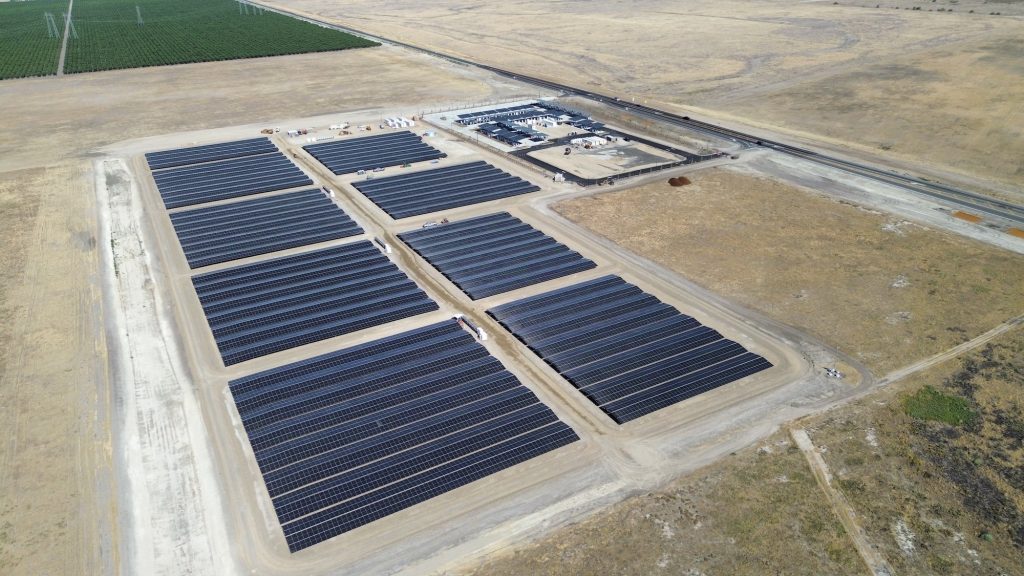
Credit: Tesla Charging | X
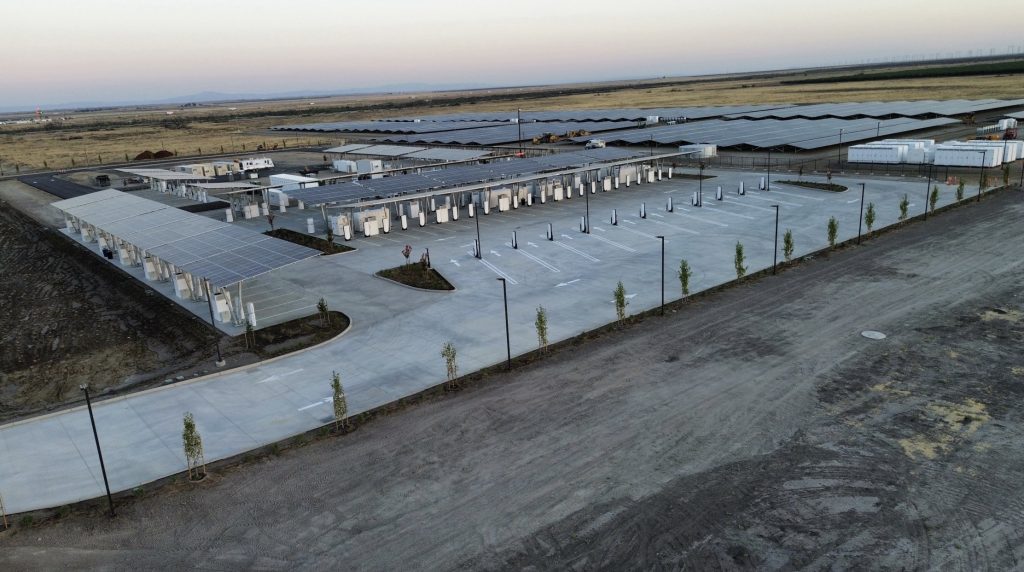
Credit: Tesla Charging | X
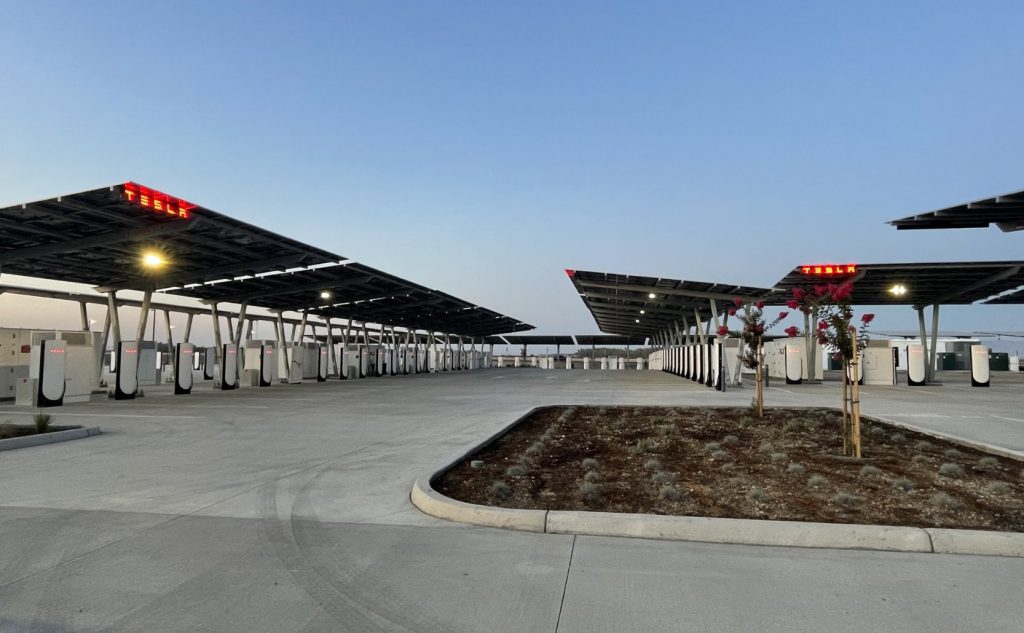
Credit: Tesla Charging | X
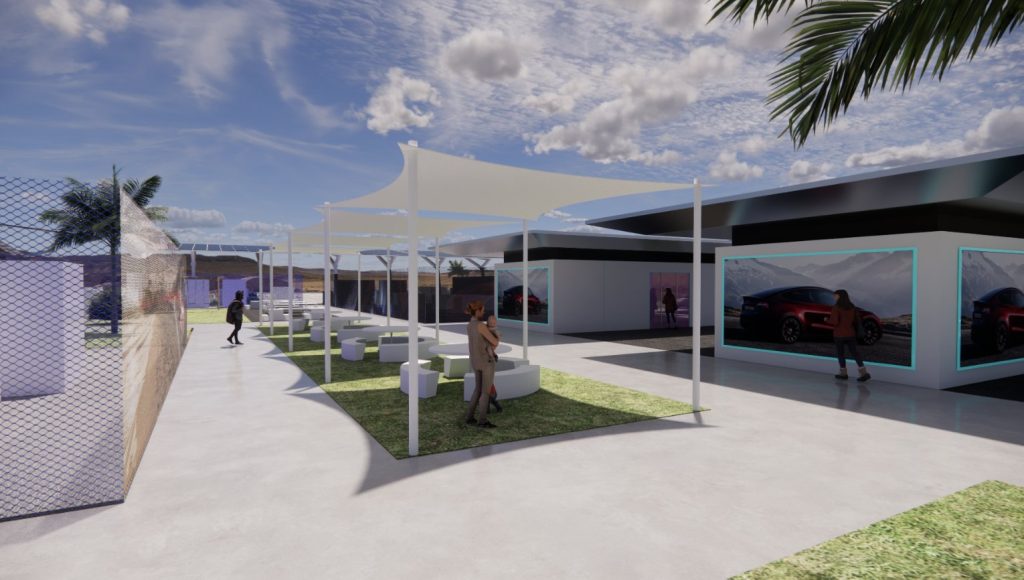
Credit: Tesla Charging | X
Tesla Supercharger Maps for North America, Europe, and Asia pic.twitter.com/0U5r0XRPyo
— TESLARATI (@Teslarati) July 2, 2025
READ MORE ON TESLA SUPERCHARGERS: Tesla launches ultra-fast V4 Superchargers in China for the first time
Testing at the LA Diner, plus Musk update on potential Tesla solar Gigafactory
The huge Tesla Supercharger station completed phase one of construction fairly quickly, especially given how long Tesla has been working on its unique Los Angeles diner, drive-in, and Supercharger location. Still, the company was seen performing some testing at the nearly-completed charging station earlier this month, and will reportedly be holding a job fair.
Elon Musk also responded on Monday morning to a post on X, suggesting that Tesla is “thinking about” building a U.S.-based solar Gigafactory in order to help support increased power needs with AI growth, and to bolster domestic solar production.
Tesla is building a new UFO-inspired Supercharger in the heart of Alien country
News
Tesla driver walks away from major accident with minor injuries
The driver sustained only minor injuries, and the exact cause of the crash remains under investigation.
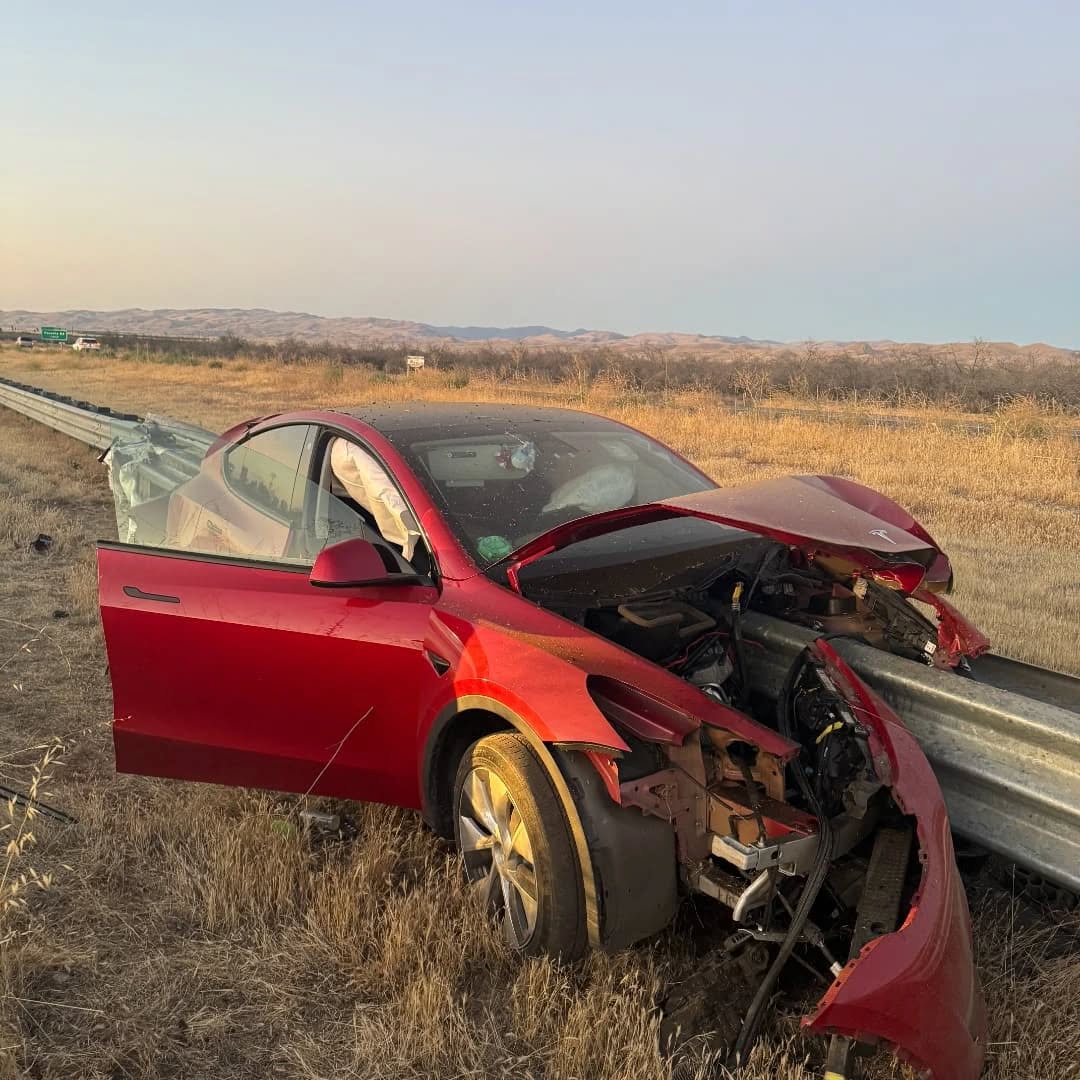
The driver of a Tesla Model Y survived and walked away from a harrowing accident on Monday in California, only sustaining minor injuries despite the vehicle being impaled by a guardrail.
On Monday morning around 4:34 a.m., the Los Banos division of the California Highway Patrol (CHP) responded to the accident on I-5 near Panoche Road, involving a 23-year-old in a Tesla Model Y. According to a post on social media, the driver veered off the road for unknown reasons in the northbound lane, before crashing directly into the guardrail and impaling the vehicle.
You can read the full message and photos from Los Banos CHP below, as were shared in a Facebook post on Monday afternoon.
This morning a Tesla model y was traveling in the #1 northbound lane of I-5 north of Panoche Rd. For unknown reasons driver allowed V-1 to veer off the roadway, travel through a dirt center divide, and crashed into the fixed metal guardrail. Lucky for the driver he only sustained minor injuries and was able to walk away. Driving a vehicle requires 100% attention to the road. Avoid distractions and focus on driving.
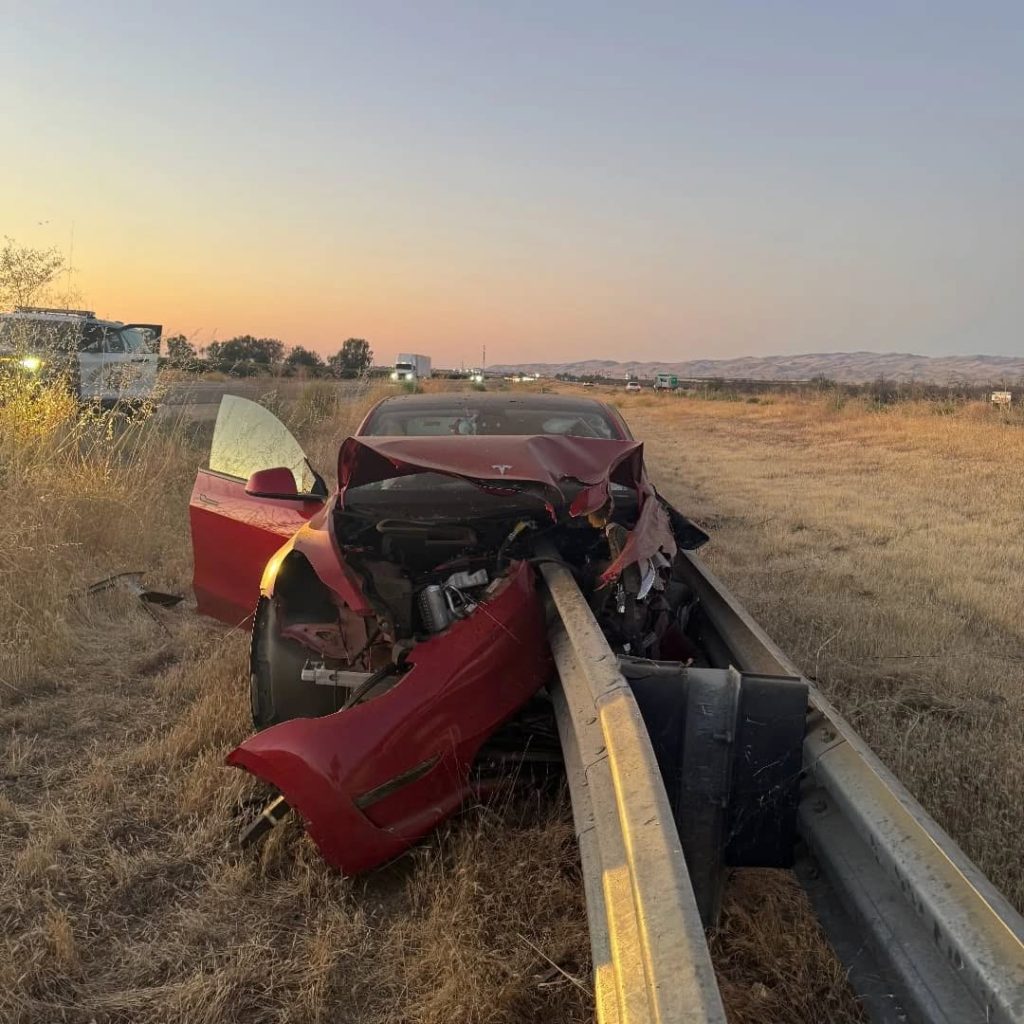
Credit: CHP Los Banos (via Facebook)
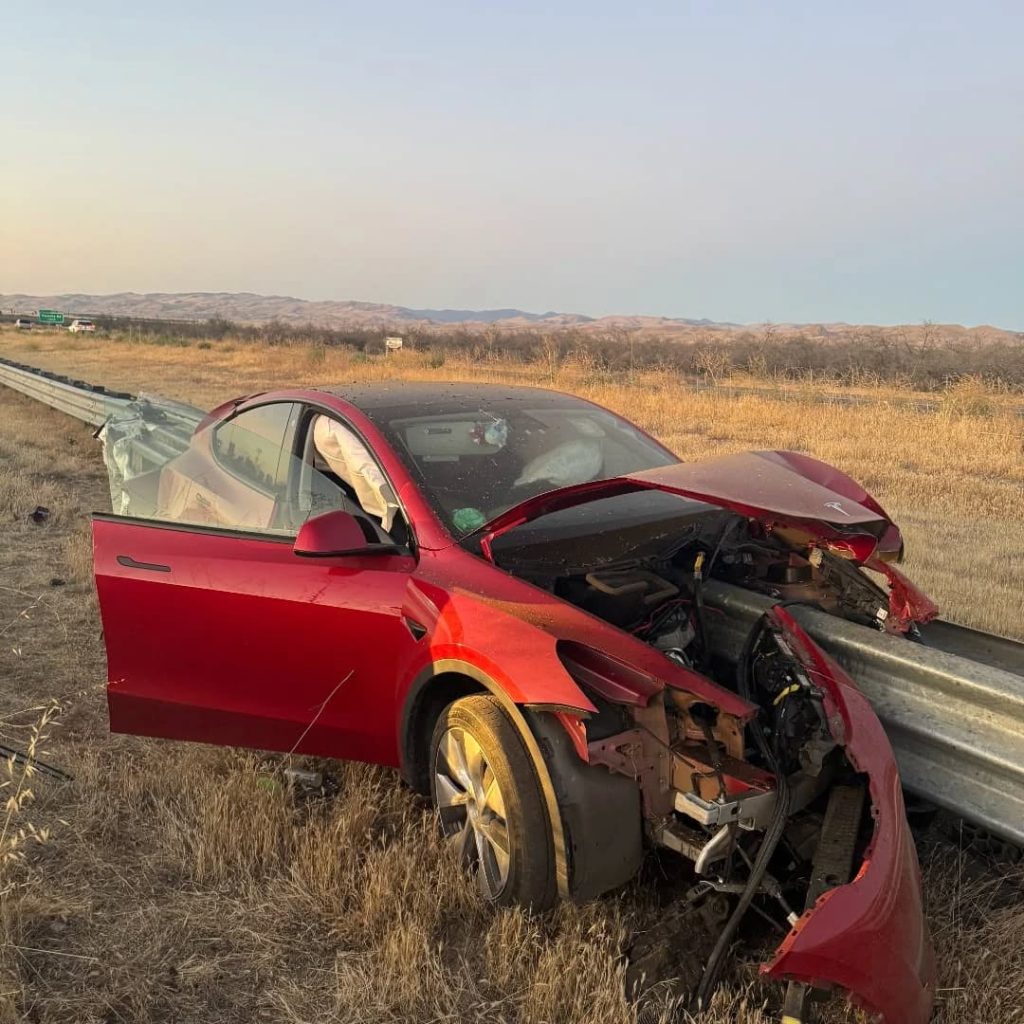
Credit: CHP Los Banos (via Facebook)
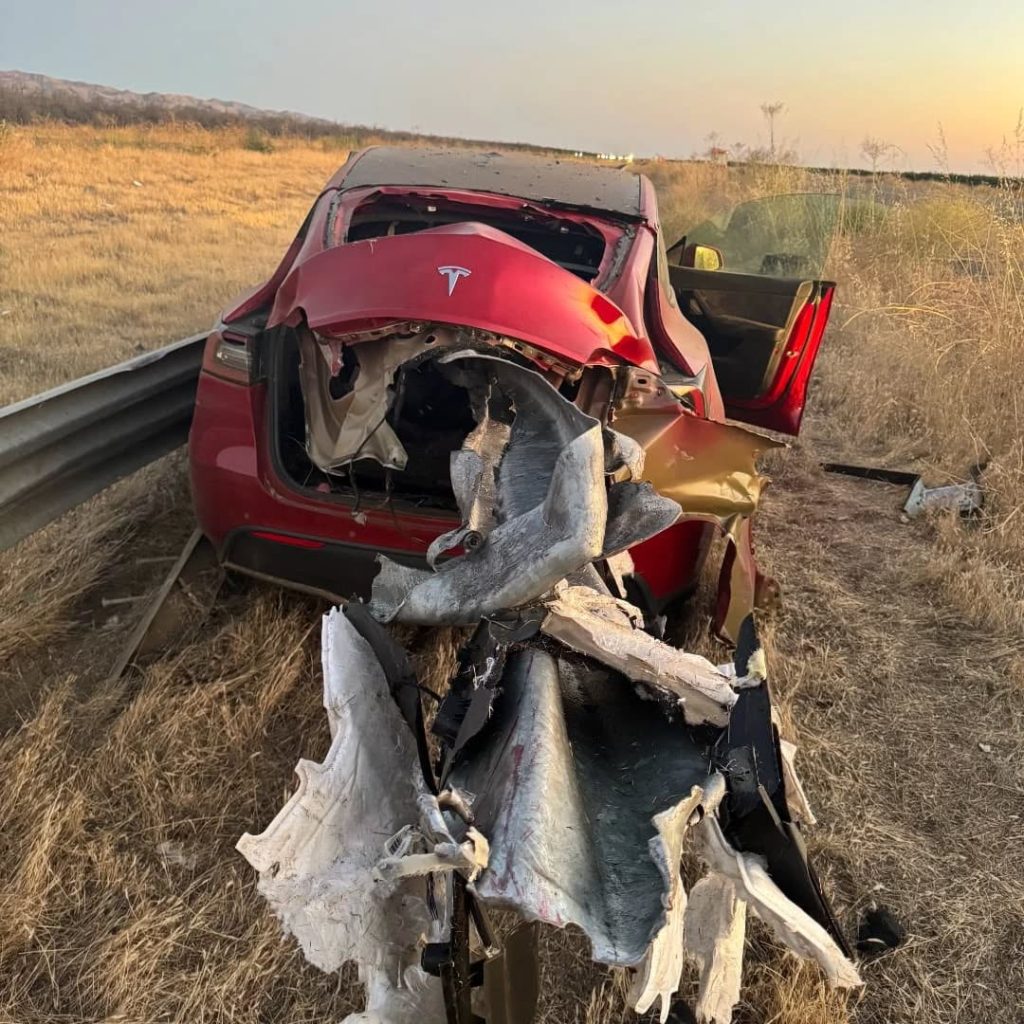
Credit: CHP Los Banos (via Facebook)
In a statement to SFGate, CHP officer Myles Anderson said that the driver only sustained minor injuries, while no arrests are made and drugs and alcohol are not suspected to have been involved. The report also notes that Tesla’s “cruise control and lane assistance features” were activated, according to Anderson. However, it’s not entirely clear if this is referring to Supervised Full Self-Driving (FSD), or to the cruise control and lane assist features baked into Autopilot.
At the time of writing, CHP has not yet responded to Teslarati’s request for clarification and additional details on the matter.
Tesla Crash Safety Ratings across its lineup: pic.twitter.com/ny30R7ceji
— TESLARATI (@Teslarati) July 1, 2025
READ MORE ON TESLA SAFETY: Tesla rolls out crucial new safety feature aimed at saving children
The news comes after Tesla has touted its vehicles as incredibly safe for many years. In December, for example, the company highlighted receiving top safety scores from regulators on four different continents throughout the world, including from the National Highway Traffic Safety Administration (NHTSA) and the Insurance Institute of Highway Safety (IIHS) in the U.S.
Tesla has also listed the goal of making its vehicles the safest on the road throughout the years, both in the overall design of its vehicles and in its Autopilot and Full Self-Driving (FSD) programs.
Tesla Model 3 ranks as the safest new car in Europe for 2025, per Euro NCAP tests
-

 Elon Musk1 week ago
Elon Musk1 week agoTesla investors will be shocked by Jim Cramer’s latest assessment
-

 News2 weeks ago
News2 weeks agoTesla Robotaxi’s biggest challenge seems to be this one thing
-

 News2 weeks ago
News2 weeks agoWatch the first true Tesla Robotaxi intervention by safety monitor
-

 Elon Musk2 weeks ago
Elon Musk2 weeks agoA Tesla just delivered itself to a customer autonomously, Elon Musk confirms
-

 News2 weeks ago
News2 weeks agoTesla Robotaxi rollout proves that Elon Musk still delivers, even if it’s late
-

 Elon Musk2 weeks ago
Elon Musk2 weeks agoxAI welcomes Memphis pollution results, environmental groups push back
-
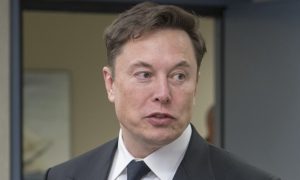
 Elon Musk2 weeks ago
Elon Musk2 weeks agoElon Musk commends Tesla team on successful Robotaxi launch
-

 Elon Musk2 weeks ago
Elon Musk2 weeks agoElon Musk confirms Tesla Optimus V3 already uses Grok voice AI




